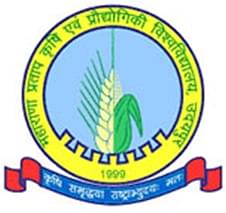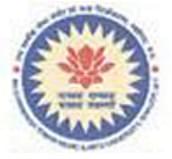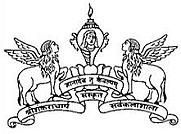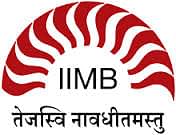Exploring a
B.Sc. in Digital Media: Top 10 FAQs Answered
Best college of Digital Media is a dynamic and rapidly evolving field, blending creativity with
technology to produce content for various platforms, including the internet,
television, and mobile devices. A B.Sc. in Digital Media prepares students for
a career in this exciting industry. Here, we answer the top 10 frequently asked
questions about this degree program.
1. What is
a B.Sc. in Digital Media?
A Bachelor of Science in Digital Media is an
undergraduate degree that focuses on the creation, design, and management of
digital content. This program combines elements of graphic design, web
development, video production, animation, and interactive media. Students learn
to use various digital tools and software to create engaging content for
different media platforms.
2. What are
the admission requirements for a B.Sc. in Digital Media?
Admission requirements for a B.Sc. in Digital Media at top college vary by institution, but generally include:
- A high school diploma or equivalent
- Minimum GPA as specified by the institution
- Proficiency in English (for non-native speakers, this may require
TOEFL or IELTS scores)
- A portfolio showcasing any previous work in digital media, art, or
design (optional but beneficial)
- Letters of recommendation and a personal statement
3. What
courses are typically included in the B.Sc. in Digital Media curriculum?
The curriculum for a B.Sc. in Digital Media
usually includes a mix of core courses and electives. Core courses often cover:
- Introduction to Digital Media
- Graphic Design Principles
- Web Design and Development
- Video Production
- Animation and Motion Graphics
- Interactive Media Design
- Digital Photography
- Media Ethics and Law
- Project Management in Digital Media
Electives may include topics like game design,
virtual reality, user experience (UX) design, and social media marketing.
4. What
skills will I develop in a B.Sc. in Digital Media program?
Students in a B.Sc. in Digital Media program
will develop a range of technical and creative skills, including:
- Proficiency in graphic design software (e.g., Adobe Creative Suite)
- Video editing and production skills
- Web development skills (HTML, CSS, JavaScript)
- Animation and motion graphics skills
- Understanding of UX/UI principles
- Project management and teamwork abilities
- Critical thinking and problem-solving skills
- Effective communication and storytelling techniques
5. What
career opportunities are available for graduates with a B.Sc. in Digital Media?
Graduates with a B.Sc. in Digital Media can
pursue various career paths, including:
- Graphic Designer
- Web Designer/Developer
- Video Producer/Editor
- Animator
- UX/UI Designer
- Digital Marketing Specialist
- Social Media Manager
- Multimedia Artist
- Content Creator
- Game Designer
These roles are available in industries such
as advertising, entertainment, education, corporate communications, and
non-profit organizations.
6. How does
a B.Sc. in Digital Media differ from a B.A. in Digital Media?
The primary difference between a B.Sc.
(Bachelor of Science) and a B.A. (Bachelor of Arts) in Digital Media lies in
their focus. A B.Sc. in Digital Media tends to emphasize technical and
scientific aspects of digital media production, including programming, data
analysis, and technical skills. In contrast, a B.A. in Digital Media may focus
more on the artistic and theoretical aspects, such as media theory, visual
culture, and creative storytelling.
7. Are
there opportunities for hands-on learning and internships in a B.Sc. in Digital
Media program?
Yes, most B.Sc. in Digital Media programs
offer opportunities for hands-on learning and internships. These practical
experiences are crucial for applying theoretical knowledge to real-world
projects. Many programs have partnerships with media companies, advertising
agencies, and tech firms, providing students with internship opportunities that
can lead to job placements after graduation. Additionally, students often work
on collaborative projects, creating portfolios that showcase their skills to
potential employers.
8. Can I
specialize in a particular area within Digital Media during my degree?
Many B.Sc. in Digital Media programs offer
specializations or concentrations, allowing students to focus on specific areas
of interest. Common specializations include:
- Web Development and Design
- Animation and Visual Effects
- Video Production
- Interactive Media
- Game Design
- Digital Marketing
- UX/UI Design
Choosing a specialization can help students
tailor their education to match their career goals and interests.
9. What are
the prospects for further education after a B.Sc. in Digital Media?
Graduates with a top B.Sc. in Digital Media
college can pursue further education
to enhance their skills and career prospects. Advanced degrees and
certifications include:
- Master’s in Digital Media or Multimedia Arts
- Master’s in Graphic Design
- Master’s in Animation or Visual Effects
- MBA with a focus on Digital Marketing
- Specialized certifications in software tools and technologies
(e.g., Adobe Certified Expert, Google Analytics Certification)
Further education can open doors to
higher-level positions, such as creative director, digital media manager, or
academic roles in teaching and research.
10. How can
I choose the best B.Sc. in Digital Media program for me?
Choosing the right B.Sc. in Digital Media
program involves considering several factors:
- Accreditation: Ensure the program is accredited by a recognized
accrediting body.
- Curriculum: Review the courses offered to ensure they align with
your career goals and interests.
- Faculty: Look for programs with experienced and knowledgeable
faculty members.
- Facilities: Check if the program has state-of-the-art facilities
and equipment for hands-on learning.
- Internships and Industry Connections: Consider programs that offer
strong internship opportunities and industry partnerships.
- Alumni Network: Research the success of alumni to gauge the
program’s reputation and career support.
- Location: Consider the program’s location and its proximity to
potential job markets and internships.
By evaluating these factors, you can find a
program that provides the education and opportunities you need to succeed in
the digital media industry.
For more information visit our website : universityfindo.com . It is a platform where you can get solved all your queries .












